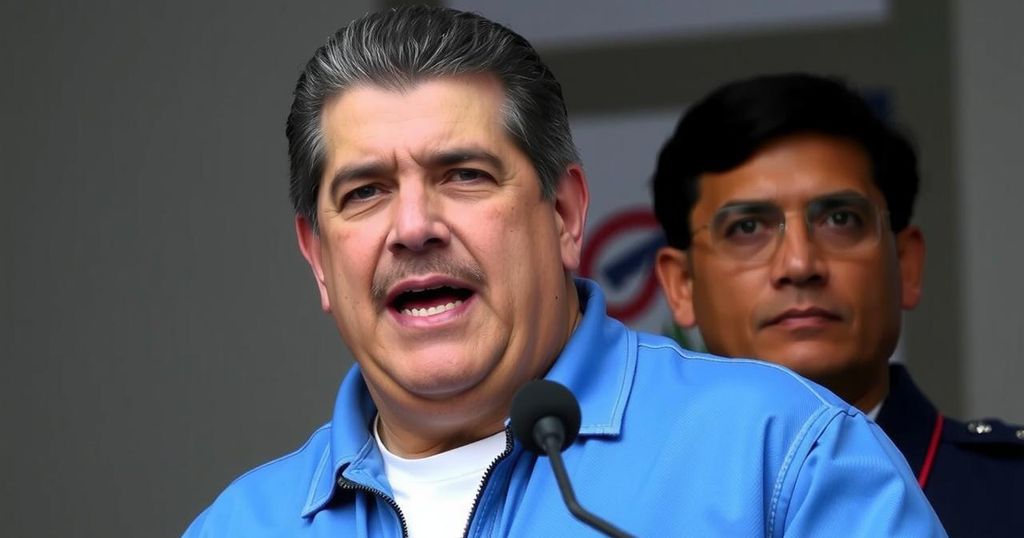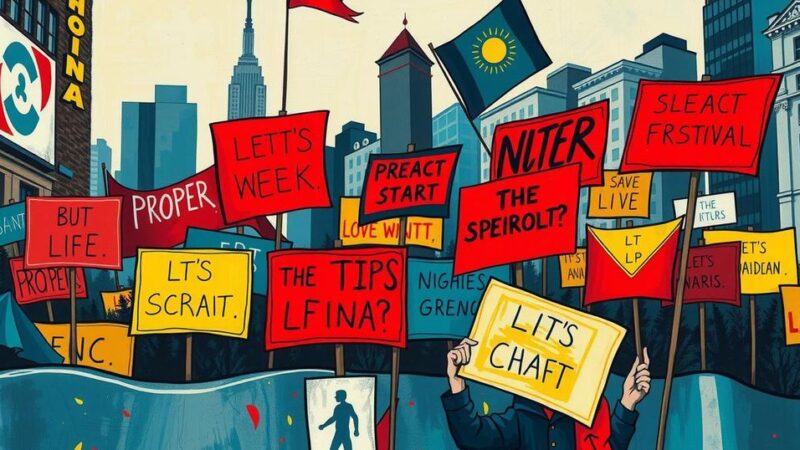Nicolás Maduro is set to start his third term on January 10 amidst accusations of electoral fraud. Despite his claimed win, opposition candidate Edmundo González is considered the true victor by many. The situation is complicated by a brutal crackdown on dissent, with mass protests planned and González seeking international support. The U.S. administration’s response remains to be seen as political dynamics shift.
Nicolás Maduro, the controversial leader of Venezuela, is set to commence his third term on January 10 amid accusations of electoral fraud. The legislative assembly, under his party’s control, will conduct the swearing-in ceremony in spite of significant doubts surrounding the legitimacy of the electoral process that took place on July 28. Maduro claims victory by over one million votes, yet many believe that opposition candidate Edmundo González won convincingly. Observers, including the Carter Center, have validated the opposition’s tally sheets as credible.
The assumption of office will enable Maduro to maintain his policies, which have led to pervasive issues such as inflation and food scarcity throughout his administration. Opposition figures are planning large-scale protests to coincide with the inauguration. However, the Venezuelan government’s harsh crackdown on dissent since the election, resulting in the arrest of over 2,000 individuals, has fostered an atmosphere of fear that may hinder protest participation. Prominent opposition leader María Corina Machado is making a return to public life as part of efforts to resist Maduro’s regime.
Recognized as the legitimate president-elect by the United States, Edmundo González has been in hiding after an arrest warrant was issued against him but has emerged to rally support for his opposition party. González recently met with President Biden, characterizing the discussions as productive. Despite threats against him from Maduro’s government, which includes a significant financial reward for information regarding his location, González continues his mission to gain international backing.
As Maduro prepares to assume power amid an evolving political landscape, questions arise regarding the stance of the incoming Biden administration towards him. Notably, Maduro has expressed a willingness to engage with President Trump, acknowledging his recent electoral victory and inviting dialogue. However, experts caution against seeing this as a genuine opportunity for negotiation, emphasizing that the liberation of Venezuela should be the foremost priority.
Further complicating the matter, analysts speculate that President Trump may modify his approach toward Venezuela compared to his previous term, especially in consideration of the vast number of Venezuelans displaced since 2014. The forthcoming administration is anticipated to reconsider strategies concerning Venezuela, influenced by lessons learned during prior policies. Concurrently, the Maduro administration has detained multiple foreign nationals, purportedly as leverage in potential negotiations with U.S. leaders.
The political situation in Venezuela has been increasingly volatile, particularly under Nicolás Maduro’s leadership. After years of economic downturn and civil unrest, the legitimacy of elections has become a major contention point. The electoral process is fraught with controversy, as many accuse the Maduro regime of manipulating results to maintain power. International observers have raised concerns regarding the fairness and transparency of elections, highlighting the profound impact on the Venezuelan populace who grapple with survival amid government oppression and cronyism.
In summary, Nicolás Maduro’s impending inauguration for a third term occurs amidst allegations of electoral fraud and widespread disapproval both domestically and internationally. The opposition is mobilizing against him despite significant risks of repression. As the Biden administration prepares to take office, the approach towards the Maduro regime remains uncertain, with potential implications for U.S.-Venezuela relations hinging on how the situation evolves in the coming months. Ultimately, the fate of Venezuela’s democracy hinges on international support for its opposition amid these challenges.
Original Source: www.foxnews.com






